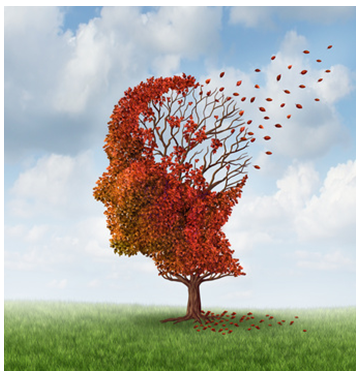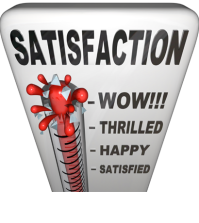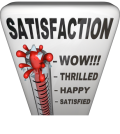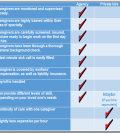- 5 Ways To Avoid A Negative Customer Experience In Your Aging Care Business
- Don’t Look Back and Regret What You Didn’t Do – Aging Care Services Are Growing
- Attitude Is Everything!
- Pam Witt’s 4 Pillars To Goal Achievement
- Use This Formula To Reach Higher Levels Of Success (No Matter Who You Are)
- Using Social Media To Market and Grow Your Aging Care Business
Keeping Your Memory Sharp As A Senior – Reversible Causes Of Memory Loss
 As we grow older, physiological changes take place in the brain that slows mental processing. With the slowed mental processing, forgetfulness can occur. However in most cases, given enough time, whatever needs to be remembered, will come to mind. Memory loss is not an inevitable part of aging. According to the Alzheimer’s association, only 11% of people over the age of 65 have Alzheimer’s disease, and only 13.9 percent of people over the age of 71, have dementia. If your senior is having forgetful moments, it’s important to rule out any reversible causes:
As we grow older, physiological changes take place in the brain that slows mental processing. With the slowed mental processing, forgetfulness can occur. However in most cases, given enough time, whatever needs to be remembered, will come to mind. Memory loss is not an inevitable part of aging. According to the Alzheimer’s association, only 11% of people over the age of 65 have Alzheimer’s disease, and only 13.9 percent of people over the age of 71, have dementia. If your senior is having forgetful moments, it’s important to rule out any reversible causes:
- Do a medication review with your senior. Medications such as sleeping pills, antihistamines, blood pressure pills, arthritis medications, muscle relaxants, urinary incontinence medications, anti-anxiety medication, pain killers, heartburn pills, and antidepressants are a few that may be contributing to forgetfulness. Don’t have your loved one stop taking any medications before consulting with their doctor first.
- Depression can also mimic signs of memory impairment, making it hard to concentrate. Depression is most prevalent in seniors who are not socially active.
- Vitamin B12 deficiency is common in older adults and can cause forgetfulness and memory loss. As we get older, the digestive system is less able to digest vitamin B12, causing a deficiency. Your loved one’s doctor can run a blood test to determine the B12 level, and then prescribe B12 supplements (usually an injection) if B12 levels are low.
- Hypothyroidism or hyperthyroidism can cause memory problems and forgetfulness. Your doctor can run blood test to determine if your loved one’s thyroid hormones are in balance. If it turns out the thyroid isn’t functioning properly, your loved one’s doctor can prescribe medications to help.
- Dehydration can cause sodium levels and other electrolytes to become imbalanced. This can also cause confusion. Often, elders don’t drink enough water because it causes them to go to the bathroom more often than they’d like. It’s important to keep up with hydration. If your loved one is going to the bathroom at night, often, be sure their water pills aren’t taken right before bedtime. If you need help scheduling medications, your doctor can help.
- Blood sugar being too high, or too low can also cause symptoms of confusion and forgetfulness. Your doctor can check for this with a blood test, and prescribe what is necessary to regain control of the blood sugar.
Healthy Lifestyle Practices that Help Minimize Forgetfulness
If you don’t use it, you’ll lose it. The brain is like anything else in the body. It needs the right ingredients and a work out to stay in shape. Some suggestions for your loved one to keep the brain in shape are:
keep the brain in shape are:
- Exercise regularly
- Stay socially engaged
- Get enough sleep, even if this means taking cat naps during the day
- Work out the brain by playing games that involve strategy such as chess, bridge, or word puzzles. Read material that inspires thought. Learn new things regularly, such as a musical instrument, taking a class, a new walking trail, or a new art.
- Design and plan a new garden, and have a friend, family member, or a professional home health companion assist you in carrying out the plan, if needed.
I’d love to hear more tips on how to keep the brain healthy and active. What has worked for you, or your loved one?















